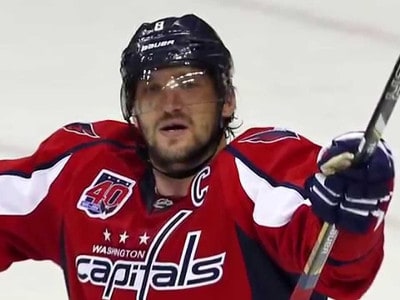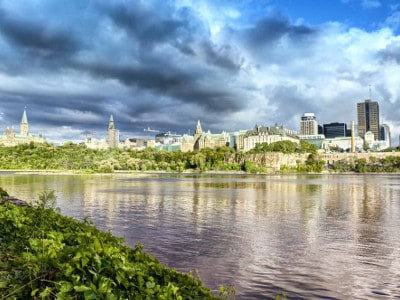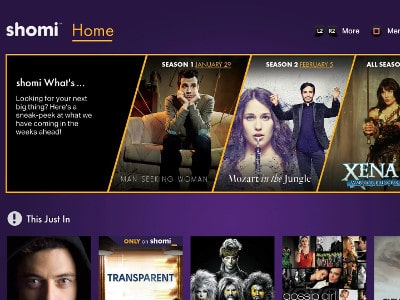
 In 2013, Rogers Communications paid $5.23 billion (with a B) to the NHL for a 12-year deal to broadcast NHL games in Canada, a decision that saw the executives who negotiated that deal high-fiving each other at the time, but which may end up hanging an anchor on the company’s bottom line as every player on every Canadian team is about 98% more likely to be teeing up a game of golf than playing hockey as this season comes to a merciful end.
In 2013, Rogers Communications paid $5.23 billion (with a B) to the NHL for a 12-year deal to broadcast NHL games in Canada, a decision that saw the executives who negotiated that deal high-fiving each other at the time, but which may end up hanging an anchor on the company’s bottom line as every player on every Canadian team is about 98% more likely to be teeing up a game of golf than playing hockey as this season comes to a merciful end.
Although Rogers claims to have posted a profit in the first year of its 12-year hockey odyssey, the likelihood of repeating that profit becomes less likely, given that Rogers’ payment schedule to the NHL will increase in size annually from $300 million in the first year to $500 million in the 12th, until the $5.2 billion is covered.
It’s not like hockey will become inherently less exciting this year than in any other year.
It’s just that watching Alex Ovechkin’s Washington Capitals hoist the cup in June may not be the type of Cinderella story that will grab Canadians’ attention as the weather finally turns summer-like.
In terms of advertising revenue to help Rogers keep up with its NHL payment schedule, that absence of Canadian action represents the kind of televisual black hole from which researchers will probably be able to detect the gentle pinging of gravitational waves.
Rogers, when it negotiated the NHL deal in the first place, must have felt like it had burgled an intact dinosaur skeleton through the front door of the Royal Ontario Museum.
But while Hockey Night in Canada had become a “too big to fail” flagship program on the CBC, the public broadcaster was probably secretly relieved to be rid of it, given that it had been costing the CBC more than it brought in for several seasons.
Previous to 2008, broadcast rights for NHL games in Canada cost the CBC, TSN and RDS a total of $92 million for all three networks combined.
But as of 2008, Gary Bettman upped the rates paid by the CBC by itself to $100 million per season, a figure which dwarfed the revenues the show brought in for the public broadcaster.
After a couple of okay seasons for Rogers under its new deal, they surely had been banking on improved revenue for 2015-2016.
But regular season broadcasts are essentially loss leaders in preparation for the advertising bonanza the playoff hockey represents, so the absence of playoff viewership numbers will be money down the drain for Rogers who can only hope for Canadian teams to do better next year.
With no Canadian teams in the hunt, ratings will certainly be down from 2015 numbers, which were already bad enough, 12% lower than in 2014, a slump that Rogers was eager to blame on the early playoff departure of “Canada’s team” (a.k.a. the Toronto Maple Leafs).
And remember, the annual amount that Rogers pays the NHL increases each year, squeezing its margin from now until 2021.
In the first year, Rogers likely assumed that hockey advertising would basically sell itself.
For certain high-profile games, like first and last games of each season, viewership numbers last year were between 2 million and 2.3 million, which is pretty high given that NBC’s average hockey audience is reportedly 379,000 per game.
And yet the NHL, in an apparent bid to up American viewership, generally kowtows to NBC’s scheduling preferences, which saw the broadcast of several Saturday afternoon games, frustrating Canadian fans and probably not sitting very well with Rogers, who after all have paid through the nose for broadcast rights.
Rogers talks a good game when it comes to making hockey relevant for millennial viewing habits, what with streaming services and generally trying to take the game to them, but if the company’s technological savvy turns out to be as effective as their talent for pushing on-camera personalities and programming content (think Strombo and co.), then 2021 can’t come fast enough to get this deal off the company’s books.
At the end of last season, Rogers’ head of Sportsnet and NHL properties Scott Moore said that he felt good about next season, looking forward to the excitement generated by the Conor McDavid story and the Leafs rebuild.
And that exciting season has come gone for all intents and purposes, disappearing down a drain containing the revenues that could have existed if only one Canadian team had made the playoffs.
What Rogers’ management has in common right now with the management team on every Canadian hockey organization is that they cannot wait to turn the page on an ugly season and hope for better results next year.
Comment
One thought on “Canada's NHL playoff picture hangs an anchor on Rogers' bottom line”
Leave a Reply
You must be logged in to post a comment.





 Share
Share Tweet
Tweet Share
Share




Since like many Canadians that have had to deal with Rogers before, I got no use for them so all I got to say is :-)!!!